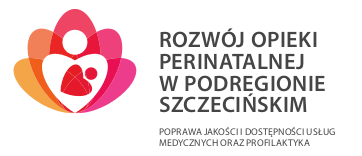NUTRITION
The correct nutrition is one of the most crucial factors, which have an impact on the pregnancy and development of the foetus. It is still before conceiving that women should go on a better balanced and varied diet to eliminate the potential nutrition deficiencies before pregnancy. The diet shall cover the increased energetic demand and be adjusted by its quality to the needs of the developing foetus and not contain any noxious substances. The energetic demand in the 2nd and 3rd trimesters of pregnancy is increased by about 300 kilocalories. The pregnant women shall drink 2 litres of mineral water. The supply of protein, whose sources are milk, cheese, milk products, boiled meat and fish shall be increased. Raw meat and half-raw meat shall be excluded from the diet because of a risk to contract toxoplasmosis, which is a reason of congenital defects in the foetus such as: hydrocephalus, retinitis and calcification in the brain. The fat in the diet shall supply about 30% of calories. The source of multi-unsaturated fat acids from omega–3 family and protein shall be fish consumed twice a week. It is recommended to eat: trout, salmon, mackerel, cod, herring and sardines. Carbonhydrates in form of cereals of wholemeal seed are a basis of healthy diet and a source of fibre. Vegetables and fruit consumed with every meal, best in raw form are rich in fibre along with vitamins and minerals. It is recommended to give up sweets – known as a source of empty calories.
During the pregnancy, the demand for some vitamins and minerals grows, and they shall be administered in form of diet supplements as they are most frequently not supplied in a sufficient amount with the food.
An obligatory diet supplement for women planning to conceive is folic acid, whose shortage is a reason for neural tube defects in the foetus. The natural source of folic acid are green leafy vegetables, citric fruit, raspberries, wholemeal products. It shall be taken at least one month before conceiving and up to the end of the first trimester at a dose of 0.4 mg. For women, who gave birth to a baby with a defect of neural tube, suffering from epilepsies, obesity and megaloblastic anaemia, this dose amounts to 4 mg.
D3 vitamin is produced naturally under the skin, under the impact of the sun. It occurs in the yolk of eggs, in butter and in chicken liver. Its deficiency is responsible for osteopenia, disorders of ovulation, premature birth, small birth weight and puerperal convulsions. The recommended dose of D3 vitamin is 1500 – 2000 units.
DHA fat acids, originating from sea fish and some species of algues, are necessary for correct development of brain and retina. Its deficiency during the pregnancy increases the risk of premature birth, low body weight and puerperal convulsions.
After giving birth, it fosters a better brain development, reduces the frequency of allergies, of type 1 diabetes and supertension, and in mother, it reduces the risk of puerperal depression. DHA dose for pregnant women is 400 – 600 mg.
Iodine deficiency may cause: pregnancy termination, goitre and a mental retardation of the foetus. The source of iodine are: sea fish, sea fruit, milk products. The recommended dose of iodine is 150-200 ug units.
The source of iron is red meat, fresh green vegetables, egg yolk. Its deficiency is a reason of anaemia and it increases the risk of small birth mass, premature child birth, and a slower development of the child. The iron is to be supplemented before pregnancy and after its second month at a dose of 30 mg.




